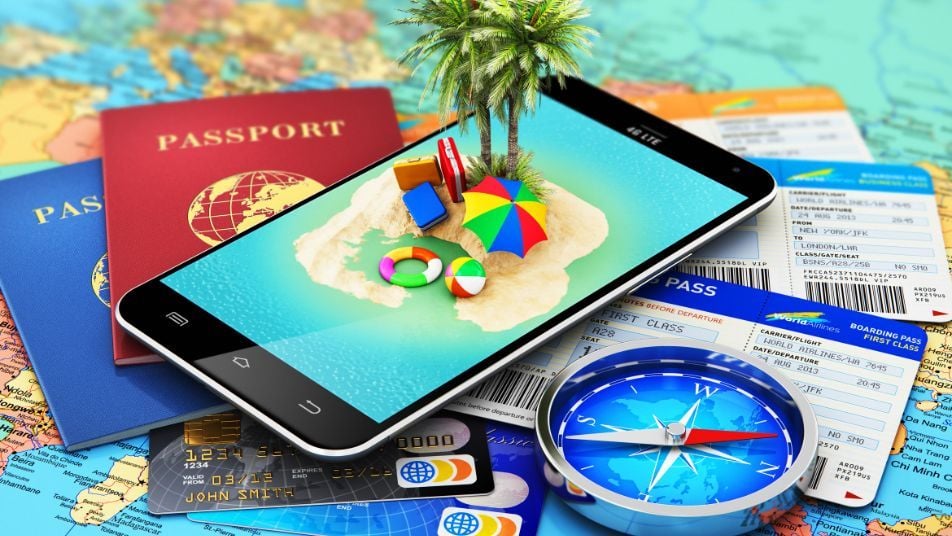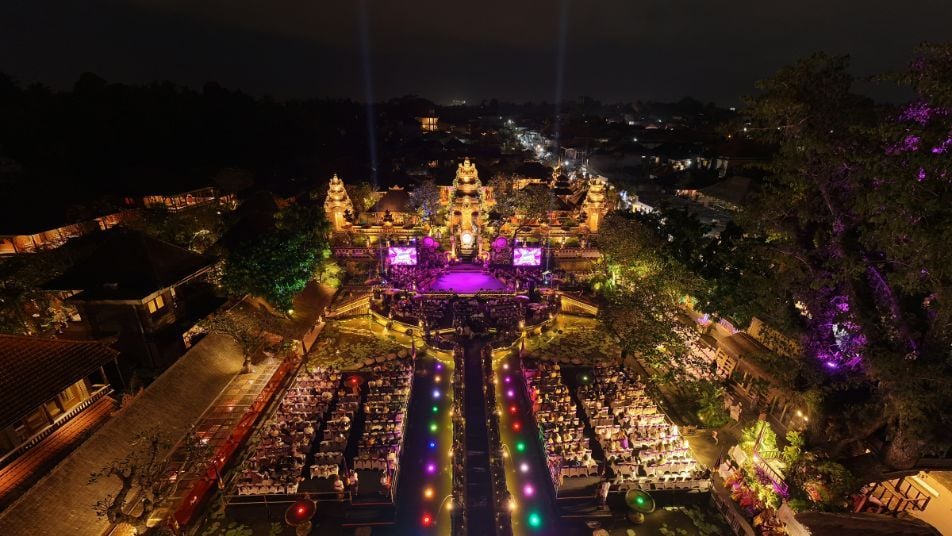Bali Smart Tourism: How Digital Innovation Shapes Your Travel Experience
by Dijiwa Sanctuaries

Bali Smart Tourism: How Digital Innovation Shapes Your Travel Experience

Bali Smart Tourism makes every journey seamless and sustainable. Guests can expect QRIS cashless payments, free Wi-Fi at attractions, smart e-ticketing, coral reef restoration projects like Biorock, and greener mobility. In 2024, Bali welcomed 6.33 million international visitors, reflecting how digital services are transforming villages, temples, and hotels into smarter, more connected spaces.
Key Stats at a Glance
The progress of Bali Smart Tourism is already visible through measurable results. These numbers highlight how technology and sustainability are shaping the island’s future.
- 6.33M international arrivals in 2024
- Nusa Penida e-ticketing levy: IDR 24.8B target (2024), up from 17.7B (2023)
- QRIS: Indonesia’s unified QR standard for island-wide cashless payments
- Biorock Pemuteran: coral growth reported 2–10× faster with restoration projects
What Is Bali Smart Tourism and How Does It Help Hotel Guests?
Bali Smart Tourism is a transformation that combines local traditions with modern technology, creating a travel experience that is both comfortable for guests and sustainable for the island’s future. For travelers, it means faster check-ins, easier transfers, and eco-friendly stays. Often called Bali Smart Island, this initiative brings digitalization to villages, temples, and resorts, while ensuring that cultural heritage and natural beauty remain at the heart of the guest experience.
Which Digital Tools Will You Use on Your Trip?
Guests may wonder which technologies they will actually encounter during their holiday. Bali’s smart tourism program focuses on practical tools that simplify every step of the journey and elevate the overall experience.
- Mobile Apps for bookings, updates, and reviews.
- IoT & Smart Sensors that monitor traffic, air, and waste to keep destinations cleaner.
- Big Data used to manage crowds and optimize guest services.
- AI Chatbots providing round-the-clock travel assistance.
- Free Wi-Fi available at popular hubs, temples, and villages.
- AR/VR Previews for cultural shows and temple tours.
Where Will You Notice Smart Systems in Action?
Travelers will find that Bali Smart Tourism is already woven into many parts of their trip. From how attractions manage tickets to how hotels personalize guest rooms, technology is quietly shaping the guest journey.
- Smart Governance: QRIS ticketing at Mount Batur, Tirta Empul, and Nusa Penida.
- Smart Mobility: GrabElectric operates more than 8,500 EVs for sustainable transfers.
- Smart Environment: The Biorock project in Pemuteran accelerates coral restoration.
- Smart Economy: Hotels and villas now use cloud systems and contactless controls.
- Smart Living: Villages like Penglipuran adopt digital training for authentic, tech-driven hospitality.
What Are the Benefits for Comfort, Speed, and Sustainability?
The positive effects of smart tourism are already felt by guests across Bali. From smooth digital payments to cleaner natural environments, these improvements translate directly into memorable stays.
- Effortless Payments — One QR code works across vendors island-wide.
- Eco-Friendly Comfort — Smart monitoring protects urban rivers and beaches.
- Global-Standard Hospitality — Hotels now provide faster check-ins, smart rooms, and immersive cultural content.
- Visitor Satisfaction — In Nusa Penida, e-ticketing helped raise local tax revenues from IDR 17.7B (2023) to IDR 24.8B (2024).
What Challenges Remain and How Are Hotels Responding?
Bali Smart Tourism is still developing, and some challenges remain visible to visitors. However, hotels are playing a leading role in overcoming these barriers.
- SME Digital Gap — Around two-thirds of Bali’s 448,000 SMEs remain offline.
- Infrastructure Limits — Remote areas like North Bali need stronger digital coverage.
- Cultural Balance — Technology must support rather than replace tradition.
- Cybersecurity & Privacy — Protecting traveler data is essential.
Boutique hotels and villas are responding by investing in cashless systems, eco-innovation, and personalized storytelling that connects guests to local culture.
What Is the Economic and Cultural Impact?
Bali’s recovery has been boosted significantly by smart tourism. Arrivals climbed from 5.27M in 2023 to 6.33M in 2024, nearly returning to pre-pandemic levels. Digital adoption, from QRIS payments to e-ticketing, has grown at triple-digit rates, helping local businesses thrive. At the same time, sustainability projects ensure that future visitors enjoy vibrant coral reefs, greener mobility options, and preserved cultural sites.
Experience Smart Hospitality With Dijiwa Sanctuaries?
Bali Smart Tourism is about harmony between comfort, culture, and environmental care. After experiencing Bali’s smart systems, complete your journey with Dijiwa Sanctuaries. Our boutique resorts in Bali and Lombok embody these same values: sustainability, digital convenience, and cultural authenticity. Guests enjoy eco-conscious living combined with Balinese artistry, creating sanctuaries where tradition and innovation come together.
Conclusion
Bali Smart Tourism shows how the island is successfully blending tradition with modern innovation. From seamless QRIS cashless payments and expanding e-ticketing systems to wider Wi-Fi coverage and sustainability projects like the Biorock reef in Pemuteran, these changes make travel more comfortable and environmentally responsible. With 6.33 million international visitors recorded in 2024, Bali has nearly returned to pre-pandemic levels, confirming its position as a world-class destination where culture, technology, and hospitality come together.
Author & Editorial Note
By the Dijiwa Sanctuaries Editorial Team — updated September 25, 2025. Sources: ANTARA, The Bali Sun, Bank Indonesia, Global Coral Reef Alliance.

